Here you can find contact details for the members of our research team. Notice that the members from the University of Santiago de Compostela have new e-mail addresses.
Subproject 1 : Effective English pronunciation in digital environments for the primary school EFL/CLIL class and beyond: Linguistic, pedagogical and didactic foundations.
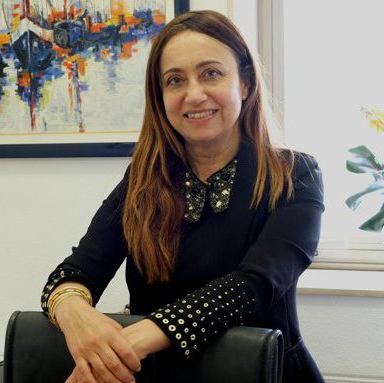
GÓMEZ GONZÁLEZ, MARÍA DE LOS ÁNGELES
More info.
Institution: UNIVERSIDADE DE SANTIAGO DE COMPOSTELA (USC)
Center: DEPARTAMENTO DE FILOLOXÍA INGLESA E ALEMÁ
ORCID Code: 0000-0003-0575-8550
E-mail: mdelosangeles.gomez@usc.es
Personal web:
https://discursoeidentidade.com/?page_id=466&lang=es
CURRICULUM VITAE:
María de los Ángeles Gómez González is Professor of English Language and Linguistics at the University of Santiago de Compostela (USC), where she teaches and coordinates the subjects English Phonetics and Phonology, English Syntax and Semantics and Pragmatics and Discourse Analysis in English.
María de los Ángeles Gómez González is the principal investigator of SCIMITAR and has led many of the research projects awarded to this research group at regional, national and international level. Her main research interests include functional and applied linguistics, as well as pragmatics and discourse analysis. María has published more than fifty book chapters, reviews and articles in numerous academic journals such as Applied Linguistics, Discourse Studies, Language Sciences and Word, among others.
She is the author of two books, The Theme-Topic Interface: Evidence from English (John Benjamins, 2001) and English Pronunciation for Speakers of Spanish (Mouton de Gruyter, 2016), and has co-edited the following volumes: A New Architecture for Functional Grammar (Mouton de Gruyter, 2004), Studies in Functional Discourse Grammar (Peter Lang, 2005), The Dynamics of Language Use: Functional and Contrastive Perspectives (Benjamins, 2005), Languages and Cultures in Contrast and Comparison and Current trends in Contrastive Linguistics: Functional and Cognitive Perspectives (Benjamins, 2008a, b), The Functional Perspective on Language and Discourse: Implications and Applications and Theory and Practice in Functional-Cognitive Space (Benjamins, 2014a, b). In addition to published research and her collaboration, as an editor or reviewer, with various publishers (i.e. Benjamins, Routledge), societies (i.e. Societas Linguistica Europea, Aesla) and journals (i.e. Annual Review of Cognitive Linguistics, Open Journal of Modern Linguistics, Functions of Language, Pragmatics), Maria has also given courses and guest lectures at various international forums and universities, including, among other examples, Vrije Universiteit Amsterdam, University of Nottingham, University of Zürich, University of York and University of Gothenburg.
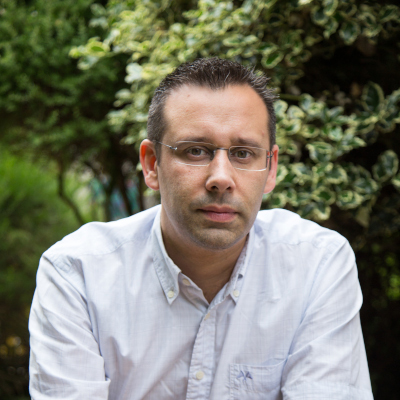
FRAGA VARELA, FERNANDO
More info
Institution: UNIVERSIDADE DE SANTIAGO DE COMPOSTELA (USC)
Center: DEPARTAMENTO DE DIDÁCTICA E ORGANIZACIÓN ESCOLAR
ORCID Code: 0000-0002-2988-0465
E-mail: fernando.fraga@usc.es
Personal web:
https://www.researchgate.net/profile/Fernando_Fraga_Varela
https://dialnet.unirioja.es/servlet/autor?codigo=1157973
CURRICULUM VITAE:
Graduated in the Faculty of Education Sciences at the University of Santiago de Compostela as a Specialist Teacher in Music Education in 1998, he teaches in Primary Education, taking on the tutoring of a group of 3rd and 4th year students. Throughout these years, he has been in charge of ICT assessment and Abalar Coordination.
At the same time, between 2001 and 2003 she studied a degree in Pedagogy, specialising in School Education, at the University of Santiago de Compostela. Subsequently, he began his Third Cycle studies in the current area of Didactics and School Organization, obtaining the Diploma of Advanced Studies with a tutored research project that investigates the beliefs about technology by teachers who are in initial training.
PhD in Pedagogy and Professor in the Department of Pedagogy and Didactics at the University of Santiago de Compostela since 2007, he began his teaching first in Campus de Luego of the USC in the Faculty of Teacher Training and since 2013 in Santiago in the Faculty of Education Sciences. Member of the Stellae Research Group. She mainly researches on the field of Educational Technology in specific areas such as teacher training, its integration in school environments or in the space of beliefs and professional knowledge. She participates in different national and international R&D projects.
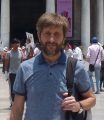
REGUEIRA FERNÁNDEZ, XOSÉ LUIS
More info
Institution: UNIVERSIDADE DE SANTIAGO DE COMPOSTELA (USC)
Center: DEPARTAMENTO DE FILOLOXÍA GALEGA
ORCID Code:
E-mail: xoseluis.regueira@usc.gal
Personal web:
https://ilg.usc.gal/es/persoal/xose-luis-regueira-fernandez
CURRICULUM VITAE:
Xosé Luís Regueira Fernández (Vilalba, 1958) is a professor of Galician and Portuguese Philology. He graduated in Romance Philology from the University of Santiago de Compostela in 1982 and obtained his PhD from the same university in 1989. He has been a member of the ILG since 1981. He has been director of the Institute since 2018.
His research interests focus on phonetics and spoken language variation. He has participated in several research projects along these lines, in several of them as principal investigator.
He is secretary of the journal Cadernos de Lingua, published by the Real Academia Galega, and is a member of the scientific committees of several journals in the field.
He has been a full member of the Real Academia Galega since 2012.
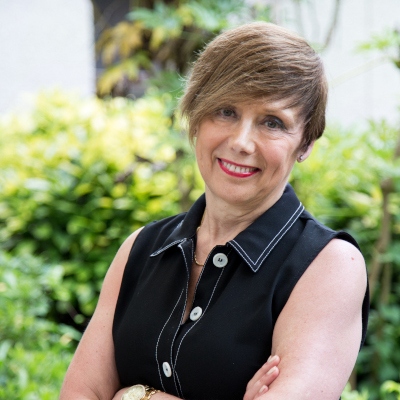
Gewerc Barujel, Adriana
More info.
Institution: UNIVERSIDADE DE SANTIAGO DE COMPOSTELA (USC)
Center: DEPARTAMENTO DE DIDÁCTICA E ORGANIZACIÓN ESCOLAR
ORCID Code: 0000-0002-7369-9903
E-mail: adriana.gewerc@usc.es
Personal web:
https://www.researchgate.net/profile/Adriana_Barujel
http://usc-es.academia.edu/AdrianaGewerc
https://dialnet.unirioja.es/servlet/autor?codigo=18976
CURRICULUM VITAE:
She holds a degree in Education Sciences from the National University of Cordoba, Argentina, and a PhD in Pedagogy from the University of Santiago de Compostela, where she currently teaches New Technologies applied to Education.Her professional and personal history is divided into two worlds: the beginnings in Córdoba-Argentina and her entry into a Spanish university.
She has worked here and there guided by two lines: teacher training at all levels of the education system and the theory-practice relationship, or how theory helps us to understand the daily practice of teachers, a profession she takes on as her own.In his professional development, he has been constantly interested in didactics in two different but complementary fields: university and primary school. On the one hand, the university, and the meaning of teaching in it.It is the organisational context in which she carries out her practice as a teacher, so that analysis and research into her own practice makes perfect sense there.
Her doctoral thesis focused on understanding the professional identity of university teachers.
The primary school is the place where she first worked as a pedagogical advisor in a context of innovation, and where she has had the opportunity to learn and learn the pleasure of learning, from teachers and pupils.She has continued in this line of research, from her teaching degree classes, the results of which can be seen in various publications and directed works.
At present, the integration of information and communication technologies and the meaning of teaching in this context have become the axis through which the two fields of work converge.He is also currently coordinating international inter-university cooperation projects.
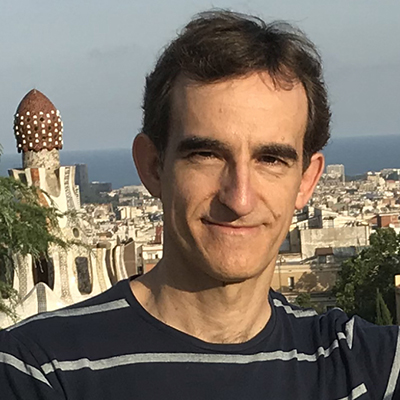
Cebrián Puyuelo, Juli
More info
Institution: UNIVERSITAT ATÒNOMA DE BARCELONA (UAB)
Center: DEPARTAMENT DE FILOLOGIA ANGLESA I DE GERMANÍSTICA
ORCID Code: 0000-0003-1547-3145
E-mail: Juli.Cebrian@uab.cat
Personal web:
https://webs.uab.cat/julicebrian/
CURRICULUM VITAE:
Juli Cebrian graduated in English Philology from the Universitat de Barcelona and holds an MA and a PhD in Linguistics from the University of Toronto, Canada. He is Associate Professor at the department of English Philology at Universitat Autònoma de Barcelona, where he teaches undergraduate and graduate courses in English phonetics and phonology, pronunciation teaching and learning, oral skills, second language acquisition and research methods.
His research investigates the acquisition of the phonology of a second or foreign language (L2) by adult learners, with a special focus on the role of cross-linguistic perceived similarity in the categorization of L2 sounds, the effect of phonetic training on L2 perception and production, and the relationship between lexical categories and phonetic categories in L2 phonology. His research interests extend to experimental phonetics, bilingualism, psycholinguistics, ESL/EFL and the teaching of pronunciation. He has led and participated in a series of funded research projects on the acquisition of L2 speech and experimental phonetics. His publications include numerous contributions to international journals and specialized books.
He is also the coauthor of a website on English phonetics and pronunciation resources (https://englishphoneticsbcn.com/) and a series of English practice books for Catalan/Spanish learners of English, and has also collaborated in the creation of English pronunciation practice materials such as the platform Say It Right (https://www.sayitrightonline.pl/). For more details see http://webs.uab.cat/julicebrian/.

Rodríguez Groba, Ana
More info
Institution: UNIVERSIDADE DE SANTIAGO DE COMPOSTELA (USC)
Center: DEPARTAMENTO DE PEDAGOXÍA E DIDÁCTICA
ORCID Code:
E-mail: ana.groba@usc.es
Personal web:
CURRICULUM VITAE:
Degree in Pedagogy (2011) from the Faculty of Education Sciences at the University of Santiago de Compostela (End of Degree Award from the Xunta de Galicia).
She completed her training with Psychopedagogy (2013) and with the Master’s Degree in Training Processes (RD 1393/2007), specialising in Innovation and Quality (2013) and with a Master’s Thesis on teaching with new technologies, which marks a path that she is currently pursuing.
After a year as a research assistant with a grant within the project “Institutional strengthening of areas dedicated to university teaching with new technologies” (2012), and after enjoying a year of pre-doctoral grant from the Xunta de Galicia and a University Teacher Training Contract (FPU 2013), she presented the thesis “Teaching with social networks and self-regulated learning.Un estudio de caso en la universidad” (2019), with which she obtained the End of Doctorate Award from the University of Santiago de Compostela and the 1st RUTE prize for the Best Doctoral Thesis in Educational Technology.
Her training is complemented by attending and participating in conferences, congresses, courses and seminars on technologies at different educational levels, as well as research stays at the University of Oulu (Finland) and at the Institute of Technology and Didactics in Genoa (Italy).
She also participates in national and European projects mainly focused on technology and didactics.
Since 2020 she is assistant professor at the Department of Pedagogy and Didactics, in the area of Didactics and School Organisation at the Faculty of Education Sciences, Campus Vida, Santiago.
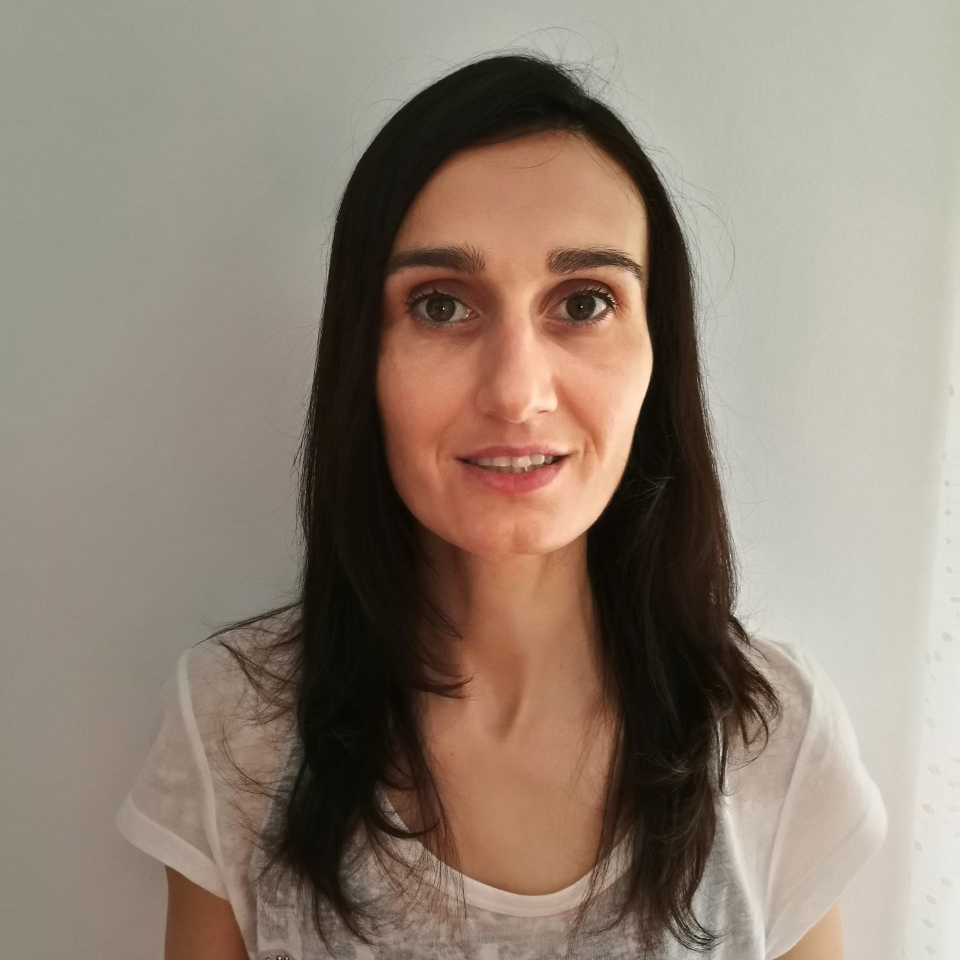
Vila Couñago, Esther
More info.
Institution: UNIVERSIDADE DE SANTIAGO DE COMPOSTELA (USC)
Center: DEPARTAMENTO DE PEDAGOXÍA E DIDÁCTICA
ORCID Code: 0000-0001-6407-463X
E-mail: esther.vila@usc.es
Personal web:
https://dialnet.unirioja.es/servlet/autor?codigo=2152712
https://www.researchgate.net/profile/Esther_Counago
CURRICULUM VITAE:
She holds a degree in Pedagogy and a PhD in Education from the University of Santiago de Compostela (USC).
She has worked as a temporary lecturer in the Area of Research Methods and Diagnosis in Education at the USC and in the Area of Didactics and School Organisation at the University of Vigo. She has also worked as a pedagogue in the Quality Area of the University of Vigo and as a specialist in didactic and pedagogical methods in a training company for employment.
She is currently assistant professor at the Department of Pedagogy and Didactics (Didactics and School Organization Area), in the Faculty of Education Sciences of the USC. She has participated in publications focused on educational measurement and evaluation and in research projects on vocational guidance services, quality of schools, school and social time in childhood, written language competence and digital competence in compulsory education students.

Evans, Bronwen
More info
Institution: UNIVERSITY COLLEGE LONDON (UCL)
Center: FACULTY OF BRAIN SCIENCES
ORCID Code: 0000-0002-8495-2687
E-mail: bronwen.evans@ucl.ac.uk
Personal web:
https://www.ucl.ac.uk/pals/people/bronwen-evans
CURRICULUM VITAE:
Dr. Bronwen Evans is a a sociophonetician interested in how we adapt to and make use of variation in the speech signal to signal identity (production) and to understand talk (perception).
She is particularly interested in Second Dialect Acquisition and the factors that affect how mobile speakers adapt their speech processing when they move to a new community.
She gained her undergraduate degree in Modern Languages (French & Russian) & Linguistics from Trinity College, Cambridge before studying at Newcastle University (MSc) and then UCL (PhD), where she have been ever since.
She have always taken a keen interest in education: Teaching modules in phonetics and sociolinguistics, running SocLab with her PhD students, and she is currently Vice-Dean for Education in Brain Sciences.
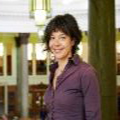
Adami, Elisabetta
More info
Institution: UNIVERSITY OF LEEDS
ORCID Code: 0000-0003-3651-919X
E-mail: e.adami@leeds.ac.uk
Personal web:
https://ahc.leeds.ac.uk/languages/staff/538/dr-elisabetta-adami
CURRICULUM VITAE:
Dr. Elisabetta Adami, Associate Professor in Multimodal Communication, specialized in social semiotic multimodal analysis.
She is interested in how people use resources such as gestures, face expression, sounds, speech, images, writing and objects, to make meaning of the world, with others and in space. I look at sign-and-meaning-making practices in place, in face-to-face interaction, and in digital environments, with a special attention to inter- cross- and transcultural communication.
She holds a PhD in English Studies and Linguistics at the University of Verona (Italy) and did a one-year Special Research Programme at the Institute of Education (UCL-London), with research on YouTube and mobile technologies.
Before coming to Leeds, she worked as a tenured researcher at the University of Chieti-Pescara (2012-2015) and as a teaching fellow at the University of Verona (2009-2012).
She was also part of an ESRC/NCRM-funded project on Methodologies for Multimodal and Narrative Analysis of UK Food Blogs (Institute of Education, UCL).
She is a co-founding editor of the journal Multimodality & Society, former editor of Visual Communication, and in the editorial board of the journals Visual Communication, Multimodal Communication and Kairos: Rhetoric, Technology and Pedagogy and was the coordinator of PanMeMic: Interaction and Communication in the Pandemic and beyond, a collaborative research project gathering academics and non-academics worldwide to develop understanding of how social interaction and communicative practices have been changing during the Covid-19 pandemic.

González Villa, Ángela
More info.
Institution: UNIVERSIDADE DE SANTIAGO DE COMPOSTELA (USC)
Center:
ORCID Code: 0000-0003-3920-6236
E-mail: angela.villa@usc.es
CURRICULUM VITAE:
Graduate in Pedagogy (2019) in the Faculty of Education Sciences of the University of Santiago de Compostela, obtaining the following awards:
End of Degree Award from the Xunta de Galicia, Extraordinary End of Degree Award from the Faculty of Education Sciences (USC) and the Award for Academic Excellence of Degree in the 2017/2018 academic year by the Xunta de Galicia. She completed her training with the Master’s Degree in Training Processes (2020).
Her trajectory in research began with a collaboration grant (2018/2019) in the Department of Pedagogy and Didactics. Currently, she is contracted by the Ministry of Education, Culture and Sport through the University Teacher Training Programme (FPU 2019), so she is developing her research activity within the group and carrying out her doctoral thesis: Perception of the public-private dimension in digital environments and construction of identity in adolescents in Galicia.
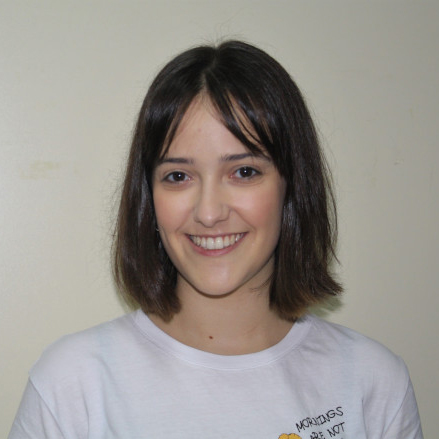
Fernández Regueira, Uxía
More info
Institution: UNIVERSIDADE DE SANTIAGO DE COMPOSTELA (USC)
Center:
ORCID Code: 0000-0003-2738-182X
E-mail: uxiafernandez.regueira@usc.es
Personal web:
https://www.researchgate.net/profile/Uxia_Regueira
CURRICULUM VITAE:
Graduate in Pedagogy from the University of Santiago de Compostela (2014/2018).
She completed her training with the Master’s Degree in Training Processes during the 2018/2019 academic year.
After a year as a research assistant at the TELGalicia Network, focused on research on educational innovation with information and communication technologies (ICT), she is working on a doctoral thesis within the framework of the Programme of Equity and Educational Innovation at the University of Santiago de Compostela, focused on technological appropriation and the construction of the identity of adolescents in digital environments, from a gender perspective.
Subproject 2: Effective English pronunciation in digital environments for the primary school EFL/CLIL class and beyond: Artificial Intelligence and gamified learning implementations
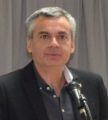
Lago Ferreiro, Alfonso
More info.
Institution: UNIVERSIDADE DE VIGO (UVigo)
Center: DEPARTAMENTO DE TECNOLOGIA ELECTRONICA
ORCID Code: 0000-0001-8697-4807
E-mail: alago@uvigo.es
CURRICULUM VITAE:
Alfonso Lago was born in Lalín, Spain, in 1962. He received the M.Sc. in Physics from the University of Santiago de Compostela, Spain in 1988, and the Ph.D. degree in Electrical Engineering from the University of Vigo, Spain in 1994. He is an Associate Professor at the University of Vigo, Spain, since 1995.
He currently holds the position of Vice-Rector for Study Programmes and Teaching Innovation, member of Coordination Council Clinical Teaching of Galicia, member of Institutional Board of the Galicia 2030 Project since 2020 and member of the Panel of Experts for the accreditation of the official university degrees of Bachelor’s and Master’s Degrees of the National Quality Assessment and Accreditation Agency (ANECA) since May 2021.
Alfonso Lago Ferreiro is an IEEE Senior Member (#40057740). He is member of the IEEE Industrial Electronics Society, IEEE Power Electronic Society and IEEE Education Society. He belongs to the directive of the IEEE Spanish Section as Chapter Coordinator (2013- 2015), Secretary (2016-2017) and Vice-Chair (2018-2019).
His research activity includes topics on switching power supplies, control applied to power converters and educational innovation.
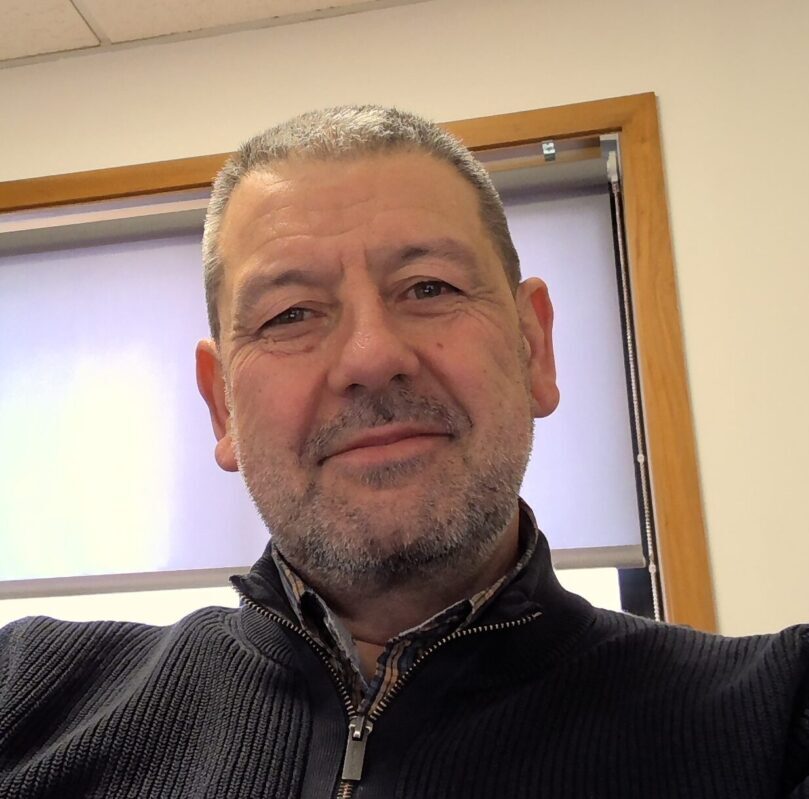
López Ardao, José Carlos
More info
Institution: UNIVERSIDADE DE VIGO (UVigo)
Center: CENTRO DE INVESTIGACIÓN EN TECNOLOXÍAS DE TELECOMUNICACIÓN (ATLANTTIC)
ORCID Code: 0000-0002-3390-0035
E-mail: jardao@det.uvigo.es
CURRICULUM VITAE:
José Carlos López Ardao has received the M.Sc. and Ph.D. degrees in telecommunication engineering from the University of Vigo, Pontevedra, Spain, in 1990 and 1999, respectively. He has been a professor at the School of Telecommunication Engineering of the University of Vigo since 1990 (Associate Professor since 2000), and a researcher of the atlanTTic Research Center, where he is also an affiliated member of the Networking Laboratory.
His field of research has always been related to the modelling and performance analysis of communication networks and traffic engineering and subjective quality in video transmission applications. However, in recent years he has also started to work in other two fields. One of them is energy conservation in communication networks. The other field is e-learning and educational technology, with a special focus on gamification, social learning and learning analytics, that is the closer related to this project.
He is a co-founder partner of the technology spin-off SocialWire Labs S.L. dedicated to the development of educational technologies based on gamification on social network environments, and Social Blue Markets S.L. focused on the deployment of social platforms for the corporate scope.
Currently, he is a member of the PhD programme in information and communication technologies of the University of Vigo, and he has directed or co-directed 3 doctoral theses. At present, he is currently supervising a doctoral thesis in the area of social-learning and Learning Analytics.
He has been Secretary and Director of the Department of Telematic Engineering of the University of Vigo. During the last years, and until now, he has been regularly giving training courses to teachers for the Xunta de Galicia and the University of Vigo in the field of e-learning, gamification and flipped-classroom.
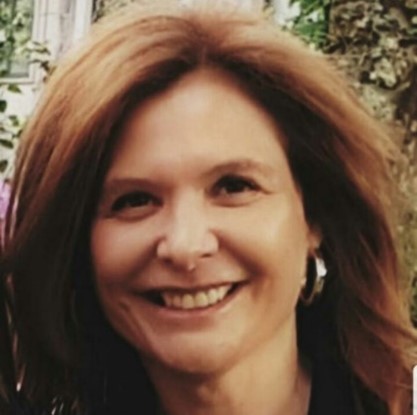
Moure Rodríguez, María José
More info
Institution: UNIVERSIDADE DE VIGO (UVigo)
Center: DEPARTAMENTO DE TECNOLOGIA ELECTRONICA
ORCID Code: 0000-0003-1954-9696
E-mail: mjmoure@uvigo.es
CURRICULUM VITAE:
María José Moure Rodríguez is PhD in Telecommunication Engineering from the University of Vigo (1996) and Associate Professor in the Department of Electronic Technology at the University of Vigo since 1993. Her research has been linked to the development of applications on programmable logic circuits and the design of instrumentation systems and sensor-based electronic circuits. At the same time, he has participated in different educational projects related to the development of virtual laboratories and applications that facilitate the learning and understanding of highly complex systems. This research is supported by publications at conferences and in prestigious journals, thanks to which he has been awarded 3 research periods. I have also combined her participation as a researcher in research projects, both national and regional, with projects of transfer to companies.
Since almost the commercial inception of configurable devices (FPGAs), she has worked at the research and development level with reconfigurable electronic systems. This research experience is related to his teaching experience as he has taught undergraduate, masters and doctorate related to the design, hardware and software, of reconfigurable electronic circuits. Some of her publications in the field of FPGAs have served to analyse the increasingly complex architectures of these configurable circuits that require both hardware and software design perspectives. This analysis allows us to understand the application of these devices in fields as diverse as industrial electronics, mechatronics, robotics, signal processing and unmanned vehicle guidance. In the same way, I have also published different applications based on FPGAs that have allowed accelerating algorithms or making SoC (System On Chip) systems less expensive, more versatile or that allow speeding up the implementation of complex algorithms. In the field of education, it has participated in research projects for the creation of multimedia programmes and hardware platforms aimed at teaching electronics. These are systems that facilitate self-learning but also the understanding of the functioning of circuits and can therefore be used in traditional laboratories.
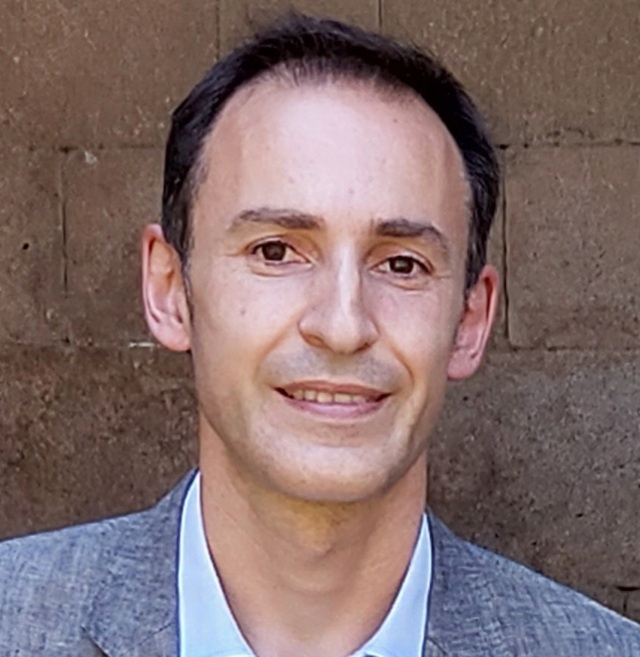
Herrería Alonso, Sergio
More info.
Institution: UNIVERSIDADE DE VIGO (UVigo)
Center: CENTRO DE INVESTIGACIÓN EN TECNOLOXÍAS DE TELECOMUNICACIÓN (ATLANTTIC)
ORCID Code: 0000-0003-3417-5821
E-mail: sha@det.uvigo.es
CURRICULUM VITAE:
Sergio Herrería Alonso is currently an associate professor in the Telecommunication School of the Universidade de Vigo. He has focused his research work on performance analysis in various areas of communications networks: quality of service, congestion control and, later, energy efficiency. The result of this work in energy efficiency has been the obtation of a patent granted with prior examination. Presently, his research interests have widened to include device to device communication in cellular networks, energy harvesting and prediction techniques for IoT sensors.
He has participated as part of the research team in five projects of the State R&D Program (previously the National I+D+i plan) and is currently principal investigator of another one. He has authored more than thirty scientific articles in journals listed in the JCR. Of those, more than twenty belong to the first two quartiles: seventeen to the Q1 quartile (six in the top ten percent) and eight in the second one. He has been editor of three special issues about energy efficiency and sensor networks in Q2 and Q1 journals, respectively. Finally, he has also coauthored a textbook published by a national editorial company. He is also a regular contributor to international conferences, presenting more than ten contributions in the last few years. Currently, he is a member of the PhD program in information and communication technologies at the Universidade de Vigo. He is cofounder of the technology spin-off SocialWire, S.L. dedicated to the development of educational technologies on online social-network environments. From 2018 to 2021 he has served as Deputy Director of the Telematics Engineering Department of the Universidade de Vigo.
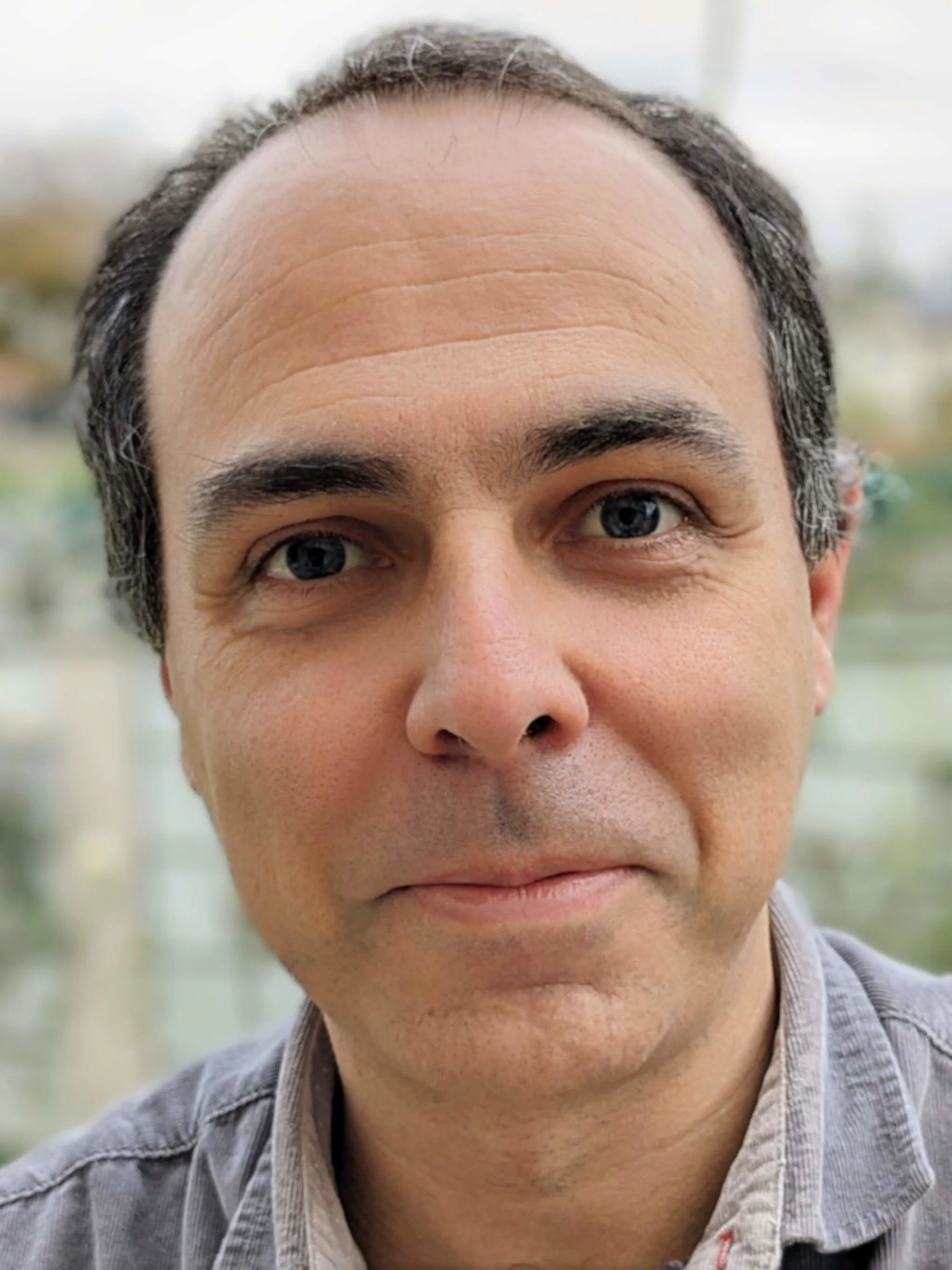
Rodríguez Pérez, Miguel
More info
Institution: UNIVERSIDADE DE VIGO (UVigo)
Center: CENTRO DE INVESTIGACIÓN EN TECNOLOXÍAS DE TELECOMUNICACIÓN (ATLANTTIC)
ORCID Code: 0000-0001-5965-1076
E-mail: miguel@det.uvigo.gal
CURRICULUM VITAE:
Miguel Rodríguez Pérez is currently an associate professor (profesor titular de Universidad) in the Telecommunication School of the Universidade de Vigo. Since he joined at the end of 2001, he has focused his research work on performance analysis in various areas of communications networks:multicast communications, congestion control and, later, energy efficiency. The result of this work in energy efficiency has been the obtation of a patent granted with prior examination. In the very last years his research interests have widened to include device to device communication in cellular networks and energy harvesting and prediction techniques for IoT sensors.
He has participated as part of the research team in five projects of the State R&D Program (previously the National I+D+i plan) and is currently principal investigator of another one. He has authored more than thirty scientific articles in journals listed in the JCR. Of those, more than twenty belong to the first two quartiles: seventeen to the Q1 quartile (six in the top ten percent) and eight in the second one. He has been editor of three special issues about energy efficiency and sensor networks in Q2 and Q1 journals, respectively. Finally, he has also coauthored a textbook published by a national editorial company. He is also a regular contributor to international conferences, serving
in the technical committee of six international conferences in the communication and computer fields and presenting more than twenty contributions in the last few years. He has been recognized as a Senior Member of the IEEE since 2018. Currently, he is a member of the PhD program in information and communication technologies at the Universidade de Vigo. He is cofounder of the technology spin-off SocialWire, S.L. dedicated to the development of educational technologies on online social-network environments.
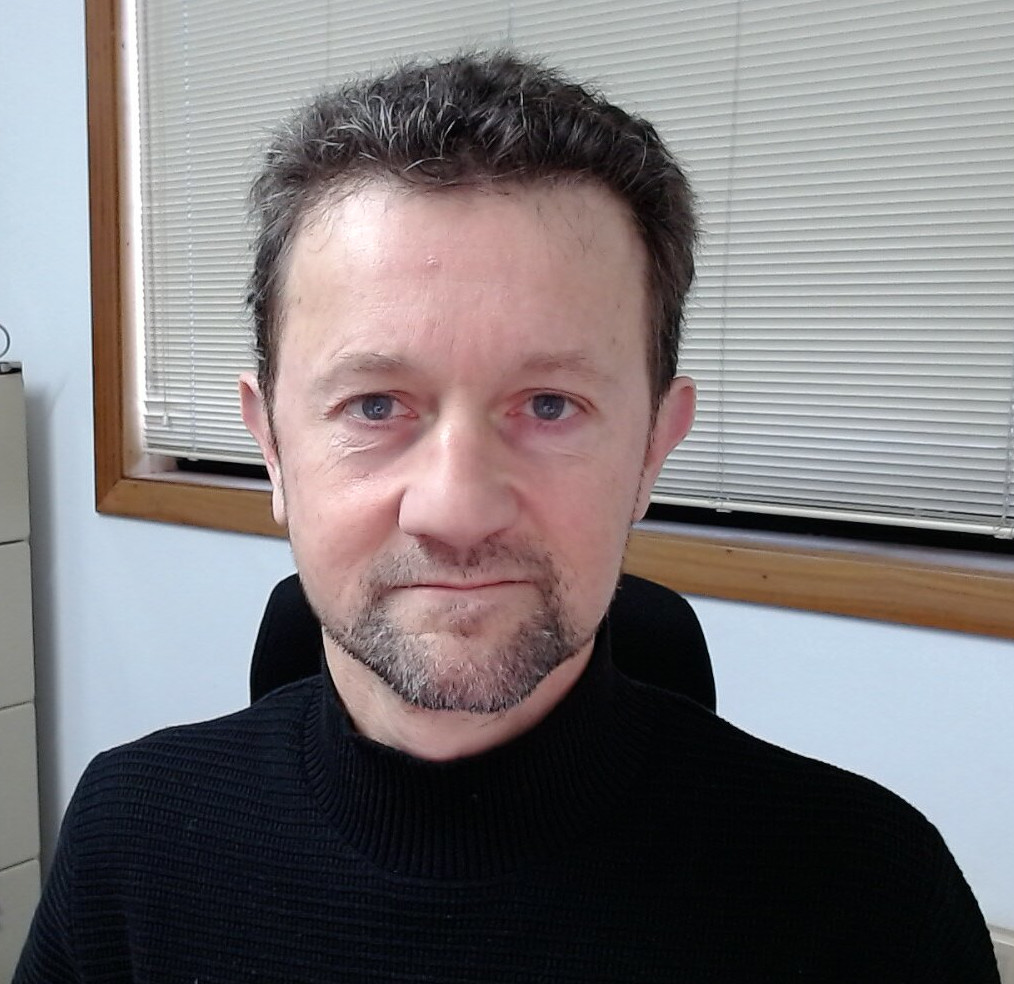
Rodríguez Rubio, Raúl Fernando
More info
Institution: UNIVERSIDADE DE VIGO (UVigo)
Center: CENTRO DE INVESTIGACIÓN EN TECNOLOXÍAS DE TELECOMUNICACIÓN (ATLANTTIC)
ORCID Code: 0000-0003-3299-150X
E-mail: rrubio@det.uvigo.es
CURRICULUM VITAE:
Dr. Raúl Rodríguez-Rubio (RRR) holds a MSc (1991) and a PhD (2000) in Telecommunication Engineering from the University of Vigo, Spain. He is currently an associate professor within the Telematics Engineering Department (DET), University of Vigo, and a researcher of the atlanTTic Research Center, as an affiliated member to Networking Laboratory researching group. In the past, he also held the positions of director of the Telematics Engineering Department, and deputy director of external relations at the School of Telecommunication Engineering. As the head of DET, he actively participated in the development of the curriculum of the Cybersecurity Master Degree of the University of Vigo. He is also member of the doctoral program Information and Communication Technologies of the University of Vigo.
His research activities and interests are mainly focus in the performance evaluation of communication protocols at the link, network and transport layer, quality of service, traffic analysis and modeling, and, in general, network simulation. Although in recent times his efforts have focused on topics like energy saving in network interfaces and energy harvesting (weather forecasting) for Wireless Sensor Networks.
Also, derived from his teaching duties, he has been involved in some research related to using social networks and gamification techniques in education. Other interesting activities are related with the deployment of two Technology Based Enterprises: Social Wire Labs -a spin-off of the University of Vigo- an Social Blue Markets; companies of which he was a founding partner, as well as a researcher and developer.
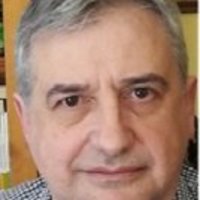
López García, Cándido
More info.
Institution: UNIVERSIDADE DE VIGO (UVigo)
Center: CENTRO DE INVESTIGACIÓN EN TECNOLOXÍAS DE TELECOMUNICACIÓN (ATLANTTIC)
ORCID Code: 0000-0001-5338-6734
E-mail: candido@det.uvigo.es
CURRICULUM VITAE:
Cándido López García is a Telecommunication Engineer from the Universidad Politécnica de Madrid since 1988 and I hold a Ph.D. in Telecommunications
Engineering from the same University since 1995.
He has been a faculty member at the Telecommunication Engineering School of the University of Vigo since 1988. He has been an Associate Professor since 1997, and Full Professor since 2019. His research field has always been related to performance analysis of communication protocols.
He has been the principal investigator of five projects of the National R&D Plan. He is the co-author of 40 scientific papers published in JCR Science Edition indexed journals (31 of them belong to the Q1 and Q2 quartiles). I am also the co-author of three textbooks published by a national publisher.
Currently, He is a member of the PhD program in information and communication technologies at the University of Vigo, and he has directed or co-directed six Ph. D. theses. He is a co-founding partner of the technology spin-off SocialWire, S.L., which is dedicated to the development of educational technologies on online social network environments.
He has been Deputy Head of Studies at the School of Telecommunication Engineering of the University of Vigo (06/05/1991 to 25/05/1994), Assistant to the Vice-Rector of University Planning (01/08/1997 to 19/06/1998) and Chair of the Department of Telematic Engineering (24/06/2004 to 29/06/2007).

Suárez González, Andrés
More info
Institution: UNIVERSIDADE DE VIGO (UVigo)
Center: CENTRO DE INVESTIGACIÓN EN TECNOLOXÍAS DE TELECOMUNICACIÓN (ATLANTTIC)
ORCID Code: 0000-0002-8402-9825
E-mail: asuarez@det.uvigo.es
CURRICULUM VITAE:
Andrés Suárez González is a Telecommunication Engineer from the University of Vigo since 1991. I hold a Ph.D. in Telecommunications Engineering from the same University since 2000. He has been a faculty member at the Telecommunication Engineering School of the University of Vigo since 1991, an Associate Professor since 2001. He has been granted three six-year research periods and department deputy director (2013/2016) and secretary (2021-). His field of research has mostly been related to modeling and performance analysis of communication networks, traffic engineering, although in recent times his efforts have focused on topics like energy harvesting (weather forecasting) for Wireless Sensor Networks. As a result of these research activities he is coauthor of twenty-two journal articles, mostly ranked Q1/Q2 in the JCR index.
Other interesting activities are related with the deployment of two Technology Based Enterprises: Social Wire Labs a spin-off of the University of Vigo and Social Blue Markets; companies of which I was a founding partner. The activities of both enterprises were centered in the deployment of social networks for enterprise or educational environments.

López Nores, Martín
More info.
Institution: UNIVERSIDADE DE VIGO (UVigo)
Center: CENTRO DE INVESTIGACIÓN EN TECNOLOXÍAS DE TELECOMUNICACIÓN (ATLANTTIC)
ORCID Code: 0000-0002-4802-607X
E-mail: Martin.Lopez@det.uvigo.es
CURRICULUM VITAE:
Martín López Nores is a degree in Telecommunications Engineering from the University of Vigo (2003) and a PhD from the University of Vigo (2006). He
joined the University of Vigo as a lecturer in 2004, taking up my position as Full Professor (Profesor Titular de Universidad) on 1 December 2021. Currently, he is University Professor.
He has tutored more than 70 final Bachelors degree projects and Masters degree projects. He has supervised 7 doctoral theses andhe is supervising/co-directing another 4, two of them at an advanced stage (with readings expected before June 2022). he is co-author of 2 teaching books and have obtained positive evaluations for three 5-year teaching periods.
He has published more than 70 articles in JCR indexed journals, 15 chapters in international books and more than 120 communications in international conferences. He hold a national invention patent. He was a co-author of the article awarded with the IFAC award to best paper published in Engineering Applications of Artificial Intelligence in 2011-2013. He has two positive evaluations for 6-year research periods and one positive evaluation for technology transfer, too. Since 2016 he is a member of the Steering Committee of the International Workshop on Semantic and Social Media Adaptation and Personalization (SMAP), and from November 2020 to December 2021 he was Deputy Director of the atlanTTic Research Centre for Telecommunication Technologies.
He has participated in 22 R&D projects funded in competitive calls at regional, national and European level. This includes 5 consecutive projects of the National R&D Plan; another 4 projects funded in competitive national calls but developed in collaboration with European partners; one project of the 7th Framework Programme of the EU and 2 projects of the EU Horizon 2020 Programme. He has been the leading researcher of the University of Vigo in the FP7 project and the two H2020 projects (actually, the General Coordinator of one of these, running since January 2020).He has also been principal investigator in 5 contracts with companies, two of them held in the context
of CONECTA PEME and INNTERCONECTA projects, and evaluator of projects for ANEP, SEPIE, the General Directorate of Traffic, the Ministry of Education and Science of the Republic of Kazakhstan, the Russian Science Foundation and the Swiss National Science Foundation.
